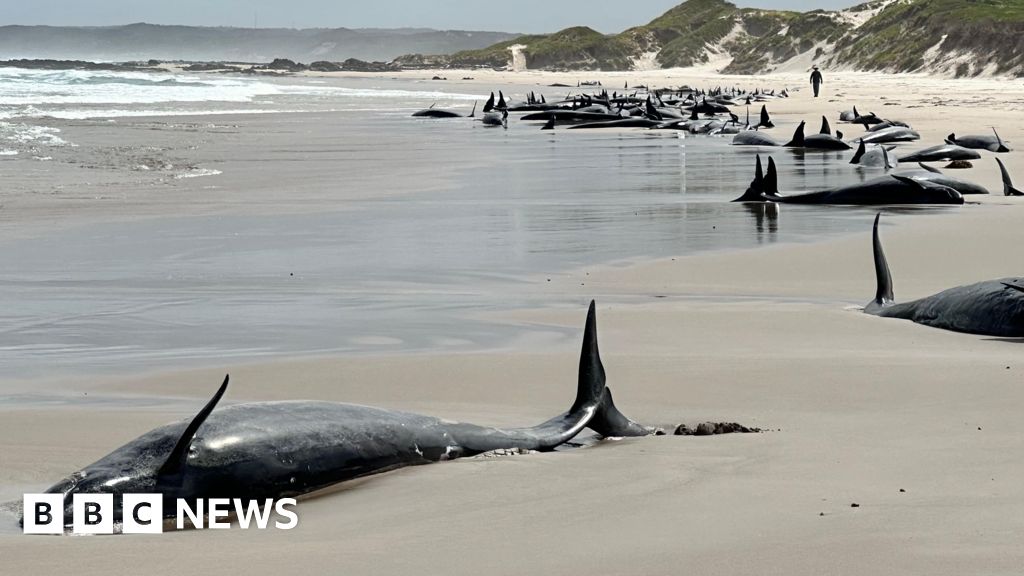
Rescue teams are urgently working to save a group of whales that have become stranded on a secluded beach in Australia, where over 150 marine mammals have been reportedly beached.
According to Tasmania’s Department of Natural Resources and Environment, 157 false killer whales were found near Arthur River, located in the northwestern part of the island.
Conservation specialists and veterinarians on the scene estimate that around 90 of these whales—some of which are juveniles—are still alive. They are coordinating efforts to safely return the healthy whales back into the ocean.
Tasmania has experienced a troubling trend of mass whale strandings in recent years, including a devastating incident in 2020 that is recorded as the largest in Australian history, involving almost 500 pilot whales. Learn more about this historic event here.
Officials have requested that the public steer clear of the area, approximately 300 kilometers from Launceston city, due to ongoing bushfires and limited access roads.
“The response to strandings in this region is complicated by the site’s inaccessibility, ocean conditions, and the difficulties in transporting specialized equipment to such a remote location,” stated a spokesperson from the department.
“If public assistance becomes necessary, an appeal will be made.”
Local resident Jocelyn Flint shared with the Australian Broadcasting Corporation that she visited the site after her son spotted the pod during an overnight shark fishing trip.
“There are babies… Families of them. Their eyes are open, and they seem to be looking at me, as if to say ‘help’,” she expressed.
“It’s absolutely heartbreaking. They’re all in distress.”
Tasmania accounts for more than 80% of whale strandings in Australia, primarily along its western coastline.
In 2020, approximately 470 pilot whales became stranded in Macquarie Harbour, with around 350 of them perishing despite the rescue efforts. A further 200 whales were also stranded in the same location in 2022.
Whales are known to be social creatures that often strand themselves in groups, largely due to their strong family bonds and reliance on effective communication.
Various theories have been proposed regarding the causes of these beachings. Some researchers suggest that the whales may become confused after pursuing their prey too close to the shore.
Others speculate that a single whale could unintentionally lead an entire pod onto the beach.









